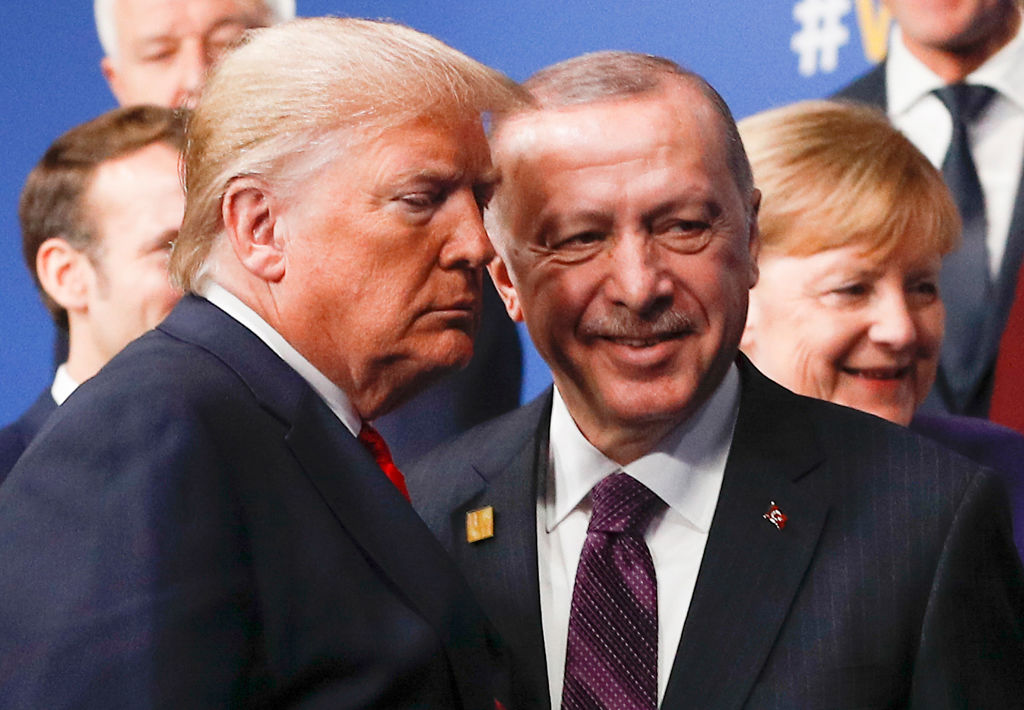Following the fall of Bashar al-Assad’s regime in Syria earlier this month, there was a brief period of excitement in Western foreign policy circles. Now, as new battle lines are drawn and Turkey reasserts its influence in the region, such hopes are fading quickly.
This week, Turkish President Recep Tayyip Erdoğan stated that if Kurdish militias in Syria did not lay down their arms they would be “buried”. The position of the new Syrian government under Hay’at Tahrir al-Sham (HTS) on the Kurdish question is unclear, but it is becoming increasingly evident that the Turks wield enormous influence over the group.
Shortly after Erdoğan’s statement, his son announced a rally in Istanbul on 1 January, adding: “Yesterday Hagia Sophia, today the Umayyad Mosque, tomorrow Al-Aqsa.” The Umayyad Mosque is in Damascus, and so we can only infer from this that the Turks consider themselves the new major power in Syria. Al-Asqa Mosque is located in Jerusalem, and so its mention raised eyebrows in Israel about this resurgence in Turkish regional power.
At the beginning of the week Erdoğan’s coalition partner, nationalist leader Devlet Bahçeli, voiced similar sentiments. During a speech he stated that “conquering Damascus signifies the conquest of Jerusalem, and Israel should not forget the Ottoman slap in the face in Tel Aviv and Jerusalem.” In mid-November the Turkish government cut all ties with Israel in an action which appears very different in light of the collapse of the Assad regime. It now seems that Turkish leaders were preparing for the Syrian operation at the same time as they were tearing up diplomatic relations with Israel.
Some argue that statements like these are just reflective of the excitement in Turkey at having regained major influence in Syria, which was once part of the Ottoman Empire, but policymakers in Washington, D.C. are paying close attention to developments. President-elect Donald Trump went out of his way to call out Erdoğan before Christmas, accusing him of engineering the fall of Assad, and suggested that Turkey might become a major regional power, claiming: “Nobody knows who will rule in the final. I believe it is Turkey.”
Israel is now scrambling to make sense of the new situation in the Middle East. Some Israeli commentators are speculating that Turkey may even form an alliance of convenience with Iran, and are calling on the United States to protect the Kurds at all costs — including by imposing a no-fly zone on the Kurdish-controlled area of Northern Syria. This action would put the United States in potential conflict with Turkey, a Nato ally whose air force is equipped with American-made planes.
Western foreign policy specialists have seemingly been caught flat-footed by the re-emergence of Turkish regional power. Until the collapse of the Assad government, most commentators assumed that Erdoğan was a cautious player who talked a big game but ultimately acted as a balancing power, working with whomever was convenient. When HTS started moving through Syria, Western analysts reverted to their old positions on the Syrian Civil War, seeing Assad as a Russian ally and therefore an enemy. Now, those same analysts are having to factor in a potentially resurgent Turkey — and they don’t know what to make of it. Increasingly, the Western framework for viewing geopolitical conflict appears broken and outdated.
As American hegemonic power wanes across the world, the state of affairs is apparently reverting to the sort of civilisational geopolitics that existed before the First World War. The impulses which drove the major players over a hundred years ago never really went away. Countries such as Turkey continued to view the dissolution of their regional influence in a negative light. Perhaps we will soon come to view the 20th century as an unusual interlude as the world returns to the rough geographies that held sway for the previous thousand years.











Join the discussion
Join like minded readers that support our journalism by becoming a paid subscriber
To join the discussion in the comments, become a paid subscriber.
Join like minded readers that support our journalism, read unlimited articles and enjoy other subscriber-only benefits.
Subscribe